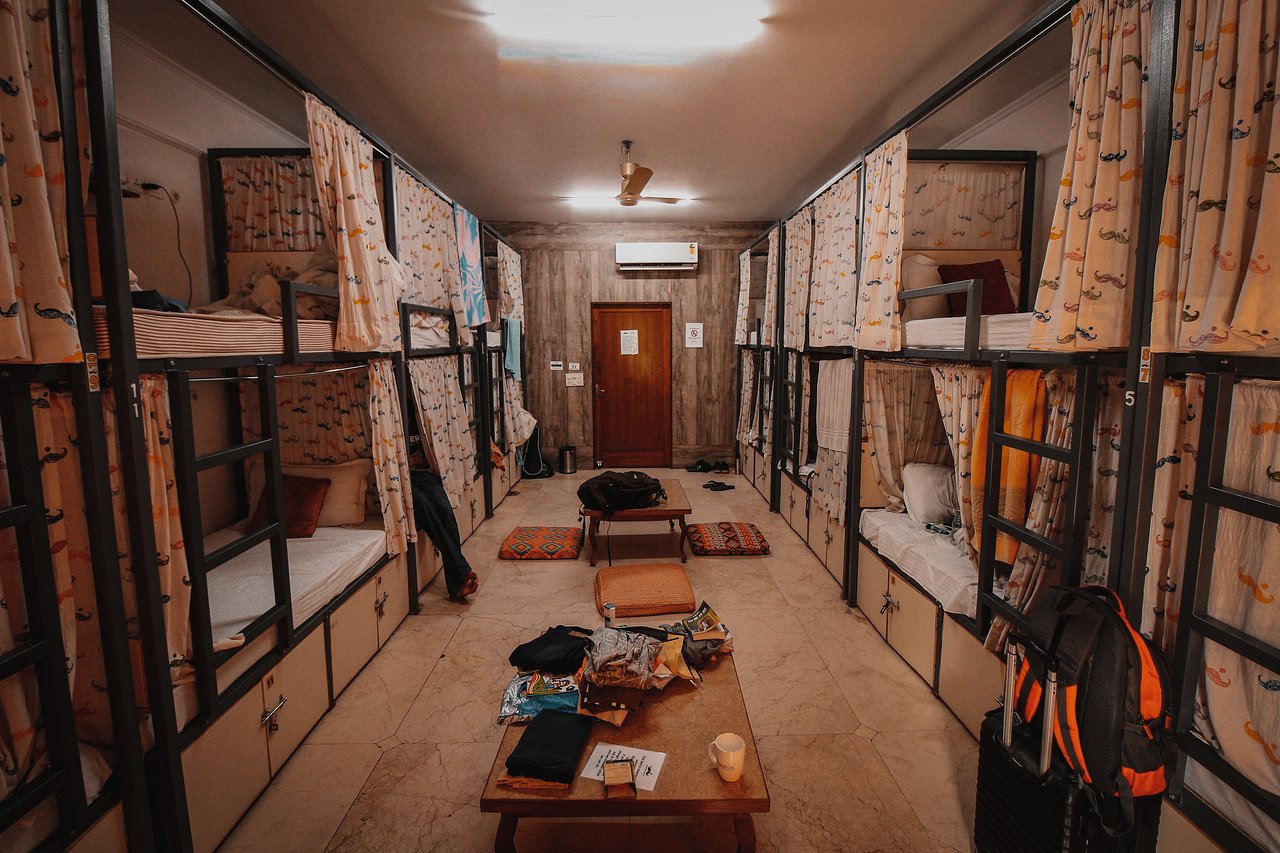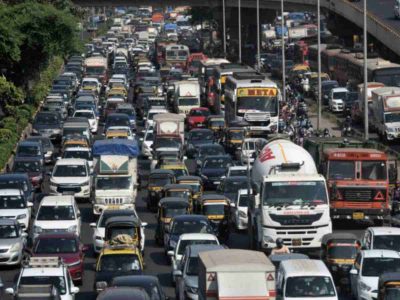While travelling, a place to stay at or just to stop at is vital. The place should be equipped with basics like a bed, a clean bathroom and food. Facilities and amenities are secondary – but equally important. What if we were to tell you that you would get all these requests fulfilled within a price bracket of Rs 300 to 500 per night?
Commercial hostel stays are the answer you are looking for. People think that hostels are just miniature versions of hotels, but they are so much more – both space and experience-wise. Equipped with all the necessary facilities, hostels provide the guests with spaces beyond the four walls of a room.
These spaces may be for work – if you are on a workation, and entertainment, if you are just chilling. Moreover, you often get to meet and interact with all kinds of people from across the world, hopefully resulting in a long-lasting friendship.
The Hosteller, Zostel, GoStops, Moustache, Desire, Backpacker’s Haven are some of the popular hostel brands in Delhi. The national capital has more than 40 hostels that house around 2000 beds, serving thousands of travellers on a daily basis.
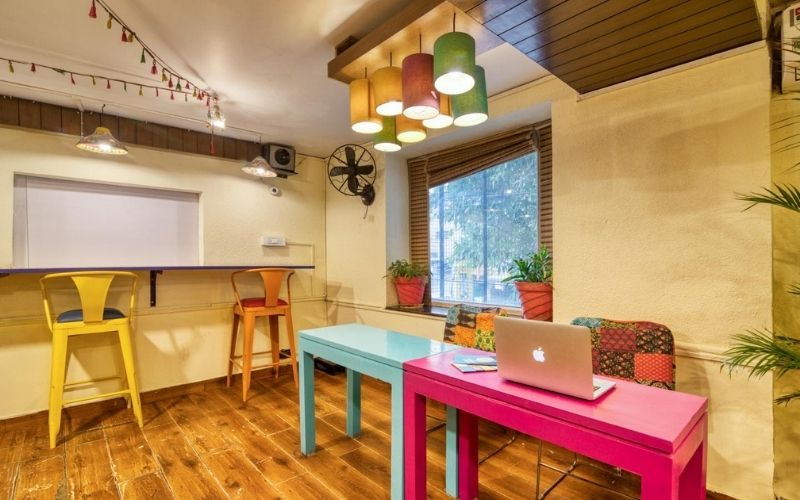
While each of these hostels has unique features, the basic amenities provided are similar – bunk beds in a four, six, eight or ten-bed dormitory, common bathrooms, private rooms, in-house cafe, workspaces equipped with workstations, games/entertainment zone, and a common area for the guests.
Commercial and luxury hotels will charge you anywhere between Rs 1,000-3,000 per night for a single room. You don’t have the option to interact with other guests or use the area outside of your room at your convenience.
Hostels will give you double the space and experience for half the price. They will offer you leisure and basics. It is a unique, out-of-the-box experience that will undeniably become a precious memory.
In retrospect
Historically speaking, the concept of hostels was introduced by Richard Schirmann in Germany in 1909 who recognised the need for a night shelter for groups of school children. It took four decades for India to learn of it, and execute it under the Youth Hostel movement initiated by the Youth Hostels Association of India.
Soon, the dynamics of ‘hostels’ picked up and the relatively new concept of traveller’s hostel has materialised. This concept may be considered western, but it is not new to India. Several sources cite the origin of these hostels in India’s Dharamshala which provides pilgrims with a free stay.
Regardless of the history, today, hostels are emerging in large numbers, attracting Indian, as well as international tourists because, at their roots, hostels provide affordable and interactive accommodation to travellers.
Besides being cheaper, they are more friendly than a hotel. Young travellers prefer the free and spontaneous vibe that comes while hanging out with a community of like-minded people. There is a need to revive this concept in a more modern context as it can greatly benefit the tourism industry. The local culture of the place where the hostel is located can be kept in mind to maximize the benefits.
Delhi – a prime location
Pranav Dangi, CEO and founder of The Hosteller – the largest hostel in Delhi says, “Delhi is a mature market for the hostel industry to grow in. Though India has two primary international airports – each in Mumbai and Delhi, the national capital sees the highest number of incoming tourists and foreigners, who generally look for cost-effective and convenient accommodation.”
He adds that Delhi is the central location for most tourists and travellers as the state is connected to popular destinations like the Rajasthan circuit, the Golden triangle, and cities like Rishikesh, Haridwar, Mukteshwar, Shimla, Kasol, Varanasi and others. “The accessibility is great. Delhi is a transit destination catering to a large group of travellers”, he says.
Moreover, Delhi has a rich heritage that narrates the stories of our culture, history and governance system through iconic monuments and beautiful gardens. It is a tourist spot even when you are halting in the city between travel. Undeniably, people will book a dorm or room in the hostels for an average of three to four nights.
Thus, Delhi becomes a prime location for the hostel industry and contributes largely to its growth. It has seen a steady and consistent rise in demand for commercial hostels owing to their low cost, strategic locations, extended facilities and convenient ambience for the guests.
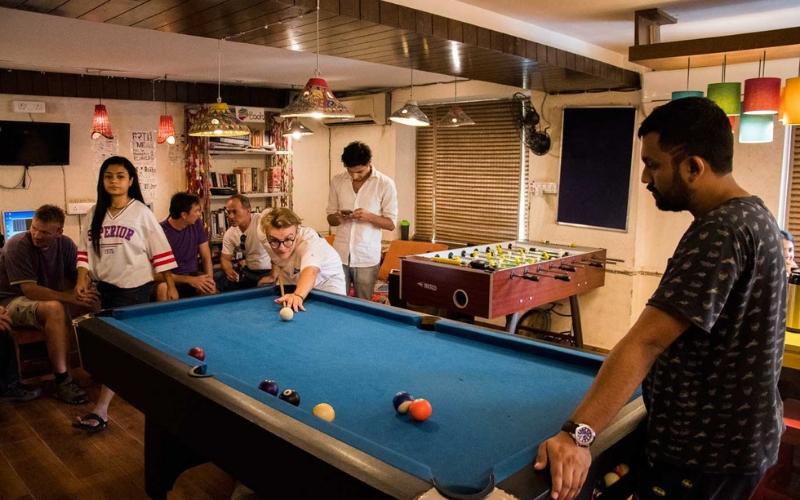
Facilities and community
Unlike hotels, these hostels will require you to adapt to a co-living space since you share every space with the community – except for the bed you sleep in.
The beds are equipped with minimal storage space for essentials, a socket to charge your electronic devices, a reading lamp, and a curtain to draw when you need privacy. You also get a locker or storage space under the bed to keep your luggage in.
Like commercial hotels, these hostels will have a dedicated team of housekeeping staff, kitchen staff, security team, community managers and hotel managers. Thus, while you pay less money, you get the same benefits, and a bit more, as you would in a hotel.
To speak of amenities, you would enjoy an inclusive space that takes care of any unwanted idleness. For book lovers, a dedicated reading space with a limited choice of books is not a rare sight at the hostels. Cafes that serve local cuisine besides other popular delicacies are a hit among the guests. Those on workations can use the spacious and well-equipped workstations to uninterruptedly do their jobs.
Hostels also provide an array of entertainment services. Board games like chess, Monopoly, Scrabble, Jenga, and in-house games like foosball, pool, snooker are common sight. Community managers, or tour guides that the hostels have a tie-up with, will organise local tours for the guests. Although, you will have to pay a minimal fee for the same.
If you have only a day to spare for local tourism, the guides will help you cover all significant spots in the city like India Gate, Red Fort, Jama Masjid and others. But with hostel services being very accommodating, they will be more than willing to alter the day-tour plans based on your preference.
Since hostels are about an experience you can share with the community, they also arrange celebrations and events to mark festivals and special days. So, you don’t have to celebrate even when away from home and family.
One of the guests at GoStops says that he has been living in the hostel for more than a month on a workation. He would have had to celebrate his birthday and Holi alone had it not been for the hostel community.

“They bought a birthday cake for me, and later, we went out for dinner. On Holi too, we played with colours and had lots of fun. It felt like I was celebrating these events with my second family. My parents were relieved that I have found a good group of friends here. We all are here temporarily, but the connection feels real”, the guest says.
Additionally, hostels are extremely inclusive of the guests. There’s no age limit for the guests, neither are they concerned about your gender, occupation or background – as long as you have a clean record and don’t cause any inconvenience to other guests. A hostel will not stereotype guests as everyone has different motives, backgrounds and preferences. There’s simply no judgement.
Reliving the dorm life
When we speak only of India, both guests and corporate services look for options that won’t burn a hole through their pockets. While guests get a bed and lots of facilities for a minimal price, hostel owners too find dorms more economical than private rooms.
With dorms, you sell the same room – but to multiple guests simultaneously. Since dorm beds are bound to fill faster, for more than a couple of days, and often with groups of people, they make more money than private rooms.
In a city like Delhi, you will find dorms of all sizes and spaces. The mixed-gender dorm facilitates groups of travellers who wouldn’t want to be segregated while on a trip. The luxury dorms, also known as twin dorms, will give you facilities like a wardrobe and TV while you share the dorm with only one other guest. The female-only dorms, where the housekeeping staff comprises women employees only, will assure security, comfort and privacy for the female guests.
WFH – Work From Hostels
“When the pandemic struck and the lockdown was imposed, we all were forced to work from home. Life got extremely monotonous. After the lockdown restrictions were relaxed, I decided to work and travel at the same time. Hostels were the best choice because you can have longer stays at a cheaper price. Plus, I could work and chill without having to worry about cooking, cleaning and other daily tasks that otherwise consume a large part of my day. And most importantly, as a woman, I find the community very safe”, says Aarti, an IT engineer from Mumbai who has been travelling across India for the last year.
Hostels provide workstations that are equipped with multiple socket plugs to charge our electronic devices. The benches and seats are comfortable and help you maintain your posture if your job requires you to be at the desk for long hours. Moreover, the community understands the need for decorum around these workstations, guaranteeing minimal distraction and discomfort.
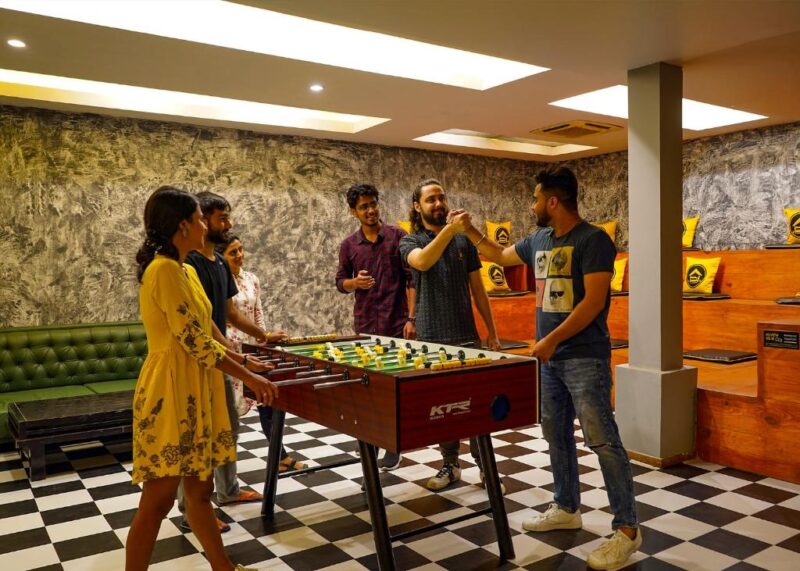
Travelling long
Keeping in mind that one of the major guest populations at hostels are travellers and backpackers, hostels will often provide you with travel packages since all popular hostel brands have a chain of locations that you can stay at.
For example, if you plan to explore the northern part of India while staying at Zostel, you can avail a travel package for Zostel Delhi, Zostel Shimla, Zostel Rishikesh and so on. The catch is that you pay lesser than usual, and simultaneously, the hostel benefits from a long-term confirmed booking. It is one of the major revenue-generating sources for them.
Handy staff
Hostel staff comprising management, housekeeping, kitchen and security stays at the hostel site to efficiently handle and resolve any issues the guests might face. While the salary is not that attractive, they do provide free food and accommodation to the staff within the building.
This is beneficial for the guests since they have 24×7 access to the service providers. But more importantly, it is also profitable for the hostels since they don’t have to invest largely in salaries. It adds to the revenue model that facilitates the growth of the company.
The journey ahead
The bottom line is that hostels provide you with multiple facilities for a cheap price – especially when compared to a commercial hotel. At the same time, the hostels take care of their revenue-generating sources, to expand their chain of buildings to other prime locations across the country.
In the last five years, Delhi saw multiple hostels emerging to cater to guests of all kinds. Today, all of these hostels are functioning well, often at full capacity. At this rate, the hostel culture in Delhi is bound to grow rapidly in the next 2 to 3 years, says Dangi. “Hostels can have an inventory of 10,000 beds across 200 hostels in Delhi in the next two to three years”, he says.
Currently, not many are aware of these hostels and the wide range of services they provide. A proper marketing strategy and PR team can work on this information gap which will boost the growth of hostels and develop a new trend in hospitality sector.
(Akash Mukherjee is a freelance writer who primarily writes about hospitality and tourism management. He is currently working with The Hosteller in Delhi.)
For more stories that cover the ongoings of Delhi NCR, follow us on:
Instagram: https://www.instagram.com/thepatriot_in/
Twitter: https://twitter.com/Patriot_Delhi
Facebook: https://www.facebook.com/Thepatriotnewsindia

